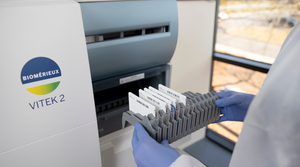FDA Makes Case for LDT Oversight
As part of its bid to bring laboratory developed tests under its jurisdiction, FDA details 20 examples illustrating how absence of agency oversight is or may be hurting patients who use LDTs.
November 17, 2015

Marie Thibault
FDA has made no secret of its interest in regulating laboratory developed tests (LDTs) and this week, the agency bolstered its case by releasing a report on 20 cases where LDTs harmed or had the potential to harm patients.
In "The Public Health Evidence for FDA Oversight of Laboratory Developed Tests: 20 Case Studies," FDA covers examples like false-positives, false-negatives, and tests that include factors with "no clear relevance to the disease." The report was published ahead of Tuesday's House Energy and Commerce Committee hearing on regulation of diagnostic tests and lab operations.
In vitro diagnostics (IVDs) are regulated by FDA while, LDTs, which are IVDs designed, made, and used in a single lab, are held to the Clinical Laboratory Improvement Amendments of 1988 (CLIA) standards, overseen by CMS. LDTs have become more complex and in 2014, FDA proposed draft guidance to phase in a regulatory framework for agency oversight of LDTs. The House Energy and Commerce Committee hearing is the first chance for FDA and CMS leaders to testify about their agencies' current and future roles on the issue.
At Tuesday's House Energy and Commerce Committee hearing, CDRH director Jeffrey Shuren, MD, gave testimony pointing to the changing nature of LDTs:
"Modern LDTs are often complex, have a nationwide reach, and have high-risk uses, and without oversight could present risks for patients and health care providers who rely on the results of LDTs to make medical decisions. In these respects, LDTs today differ from the relatively simple LDTs in use at the time of the Medical Device Amendments of 1976. In many cases, the only difference between many modern LDTs and other IVDs is where they are manufactured, and the accuracy and reliability are every bit as important for modern LDTs as for any other IVD."
In his testimony, Patrick Conway, MD, MSc, chief medical officer, acting principal deputy administrator, and deputy administrator for Innovation and Quality at CMS, argued that the current regulatory setup works. In his comments, Conway said that today's rules "prevent duplicative oversight efforts across agencies." Emphasizing the sufficiency of current regulation, Conway said:
"We believe CLIA and our implementing regulations create the necessary framework to effectively oversee laboratory's day-to-day operations today and into the future—including those operations that pertain to the use of high-complexity tests, including LDTs."
A few of the LDTs that FDA labeled problematic in its report include Lyme Disease diagnostic tests that show large numbers of false positives, a fibromyalgia diagnostic test that uses a biomarker "not adequately shown to be associated with fibromyalgia" and an improper clinical trial design, and CARE Clinics Autism Biomarkers test, which FDA says identifies causes that aren't showed to be correlated with autism and recommends treatments that don't show evidence of helping autism patients.
In an FDA Voice blog post this week, Peter Lurie, MD, MPH, FDA's associate commissioner for Public Health Strategy and Analysis, wrote that "the costs of this lack of oversight are staggering." He pointed out that FDA estimated $66.1 million in public health costs from just one of the tests cited in the report.
Andrew Fish, executive director of AdvaMedDx, an advocacy group representing diagnostics manufacturers, said in a statement Tuesday, that FDA regulation of LDTs "is crucial to ensuring patient safety, and FDA is the only agency with the current regulatory appropriate expertise and resources to provide effective oversight of this rapidly evolving area of health care."
Check out the future of medical technology—register for the BIOMEDevice San Jose Conference, December 2-3, 2015. |
Marie Thibault is the associate editor at MD+DI. Reach her at [email protected] and on Twitter @medtechmarie.
[Image courtesy of STUART MILES/FREEDIGITALPHOTOS.NET]
About the Author(s)
You May Also Like

